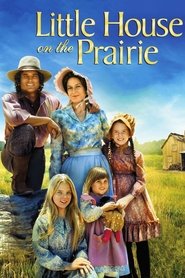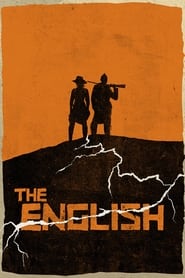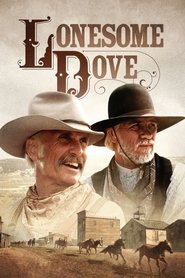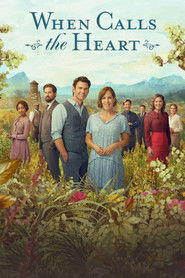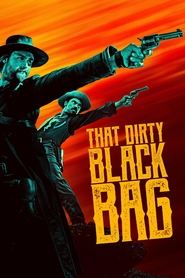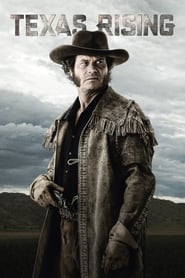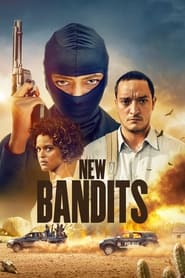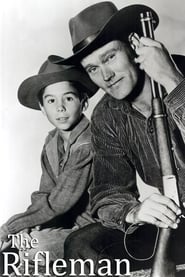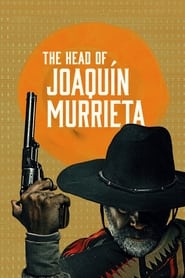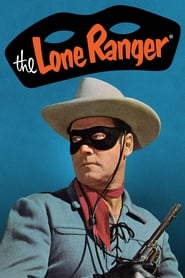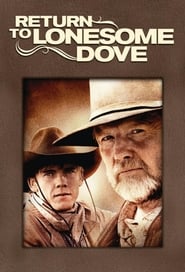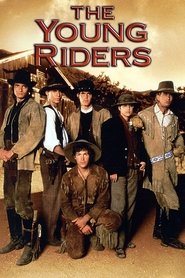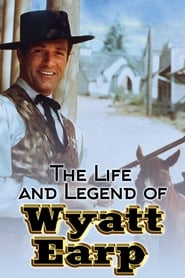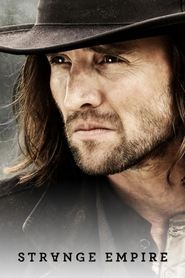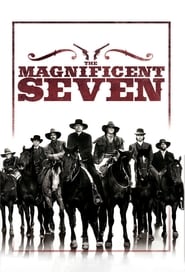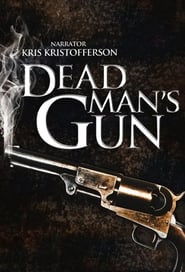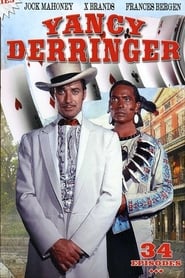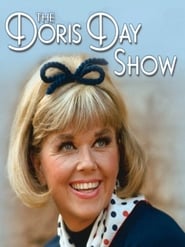Top Rated Western TV Series on Amazon Prime Video
-
Little House on the Prairie
1974
star 7.9When the big woods of Wisconsin becomes a difficult spot for hunting, Charles Ingalls reluctantly decides to move his family, pioneering west. Their life on the farm in Walnut Grove, Minnesota, in the 1870s and 1880s is full of adventure, tragedy, and triumph. Based on the books of Laura Ingalls Wilder. -
The English
2022
The English
2022
star 7.3An aristocratic Englishwoman, Lady Cornelia Locke, arrives into the new and wild landscape of the American West to wreak revenge on the man she sees as responsible for the death of her son. -
Lonesome Dove
1989
Lonesome Dove
1989
star 7.9A pair of longtime friends and former Texas Rangers crave one last adventure before hanging-up their spurs. After stealing over a thousand head of cattle from rustlers south of the border, they recruit an unlikely crew of hands to drive the herd 3,000 miles north to the grasslands of Montana. -
When Calls the Heart
2014
When Calls the Heart
2014
star 8.2Elizabeth Thatcher, a young school teacher from a wealthy Eastern family, migrates from the big city to teach school in a small coal mining town in the west. -
That Dirty Black Bag
2022
That Dirty Black Bag
2022
star 7The 8-day clash between Arthur McCoy — an incorruptible sheriff with a troubled past — and Red Bill, an infamous, solitary bounty hunter known for decapitating his victims and stuffing their heads into a dirty black bag. -
Texas Rising
2015
Texas Rising
2015
star 6.1A chronicle of the Texas Revolution, the uprising against the tyranny of Mexican dictator Santa Anna, from the battle of the Alamo to the battle of San Jacinto, and the rise of the Texas Rangers. -
New Bandits
2023
New Bandits
2023
star 7.6Adrift and desperately needing money to pay for his ailing adoptive father's care, Ubaldo, a bank clerk who's unable to remember his childhood, receives an inheritance that will change his destiny for good. He goes to Cratará, in the heart of the northwest desert, where he'll become the leader of a pack of ruthless bandits, fulfilling the legacy of his biological father - a mythical cangaceiro. -
The Rifleman
1958
The Rifleman
1958
star 7.1The Rifleman is an American Western television program starring Chuck Connors as rancher Lucas McCain and Johnny Crawford as his son, Mark McCain. It was set in the 1880s in the town of North Fork, New Mexico Territory. The show was filmed in black-and-white, half-hour episodes. "The Rifleman" aired on ABC from September 30, 1958 to April 8, 1963 as a production of Four Star Television. It was one of the first prime time series to have a widowed parent raise a child. -
The Head of Joaquín Murrieta
2023
star 6.4Greed took over California because of the gold rush. It made people thirsty for wealth and land. There, in the newly drawn border between Mexico and the US, a lawless war for control, fueled by the anger and xenophobia of the past war, is led by a group of immigrants who join forces to create the myth of the Latin Robin Hood: Joaquín Murrieta. -
The Lone Ranger
1949
The Lone Ranger
1949
star 6.8The Lone Ranger is an American western television series that ran from 1949 to 1957, starring Clayton Moore with Jay Silverheels as Tonto. The live-action series initially featured Gerald Mohr as the episode narrator. Fred Foy served as both narrator and announcer of the radio series from 1948 to its finish and became announcer of the television version when story narration was dropped there. This was by far the highest-rated television program on the ABC network in the early 1950s and its first true "hit". -
Return to Lonesome Dove
1993
star 6.9After returning the body of Gus McCrae to Lonesome Dove, Woodrow Call takes on the challenge of driving a herd of wild mustangs 2500 miles north to the Hat Creek Ranch in Montana. But tragedy, triumph, despair and deceit will greet him before he ever gets there. -
The Young Riders
1989
The Young Riders
1989
star 7.3The Young Riders was an American Western television series created by Ed Spielman that presents a fictionalized account of a group of young Pony Express riders based at the Sweetwater Station in the Nebraska Territory during the years leading up to the American Civil War. The series premiered on ABC on September 20, 1989 and ran for three seasons until the final episode aired on July 23, 1992. -
The Life and Legend of Wyatt Earp
1955
star 6.8The Life and Legend of Wyatt Earp is a television western series loosely based on the life of frontier marshal Wyatt Earp. The half-hour black-and-white program aired for 229 episodes on ABC from 1955 to 1961 and featured Hugh O'Brian in the title role. -
Strange Empire
2014
Strange Empire
2014
star 4.9Set in 1869 Alberta-Montana border country, “Strange Empire” is a Western whose heroes are women. With most of their men gone, and those who remain battling for control, the women struggle to survive, to find their independence, and to build a life in which to thrive and raise families. -
The Magnificent Seven
1998
star 6.3The Magnificent Seven is an American western television series based on the 1960 movie, which is a remake of the Japanese film Seven Samurai. It aired between 1998 and 2000. It was filmed in Newhall, California. The pilot, scripted by Chris Black and Frank Q. Dobbs, was filmed in Mescal, Arizona and the Dragoon Mountains of Arizona, near Tombstone. Robert Vaughn, who had starred in the original 1960 movie, frequently guest-starred as a crusading judge. -
Tales of Wells Fargo
1957
-
The Pinkertons
2014
The Pinkertons
2014
star 6.2Set in a young America still reeling from the Civil War, The Pinkertons follows Allan Pinkerton—founder of Pinkerton's National Detective Agency— his son, William, and America’s first female detective, Kate Warne, as they solve crimes throughout the “Wild West” of the 1860s. -
Dead Man's Gun
1997
Dead Man's Gun
1997
star 4.3Dead Man's Gun was a western anthology series that ran on Showtime from 1997 to 1999. The series followed the travels of a gun as it passed to a new character in each episode. The gun would change the life of whomever possessed it. Each episode was narrated by Kris Kristofferson. The executive producer was Henry Winkler. -
Yancy Derringer
1958
-
The Doris Day Show
1968
The Doris Day Show
1968
star 5.8The Doris Day Show is an American sitcom that was originally broadcast on the CBS network from September 1968 until March 1973, remaining on the air for five seasons and 128 episodes. In addition to showcasing Doris Day, the show is remembered for its many abrupt format changes over the course of its five-year run. It is also remembered for Day's statement, in her autobiography Doris Day: Her Own Story, that her husband Martin Melcher had signed her to do the TV series without her knowledge, a fact she only discovered when Melcher died of heart disease on April 20, 1968. The TV show premiered on Tuesday, September 24, 1968.
 Netflix
Netflix
 Amazon Prime Video
Amazon Prime Video
 Apple iTunes
Apple iTunes
 Apple TV Plus
Apple TV Plus
 Disney Plus
Disney Plus
 Google Play Movies
Google Play Movies
 Paramount Plus
Paramount Plus
 Hulu
Hulu
 HBO Max
HBO Max
 YouTube
YouTube
 fuboTV
fuboTV
 Peacock
Peacock
 Peacock Premium
Peacock Premium
 Amazon Video
Amazon Video
 The Roku Channel
The Roku Channel
 AMC+
AMC+
 Kocowa
Kocowa
 Hoopla
Hoopla
 The CW
The CW
 Vudu
Vudu
 Starz
Starz
 Showtime
Showtime
 PBS
PBS
 Pantaflix
Pantaflix
 FXNow
FXNow
 Tubi TV
Tubi TV
 Kanopy
Kanopy
 Comedy Central
Comedy Central
 Crunchyroll
Crunchyroll
 Microsoft Store
Microsoft Store
 Redbox
Redbox
 Sun Nxt
Sun Nxt
 ABC
ABC
 DIRECTV
DIRECTV
 Crackle
Crackle
 Fandor
Fandor
 Plex
Plex
